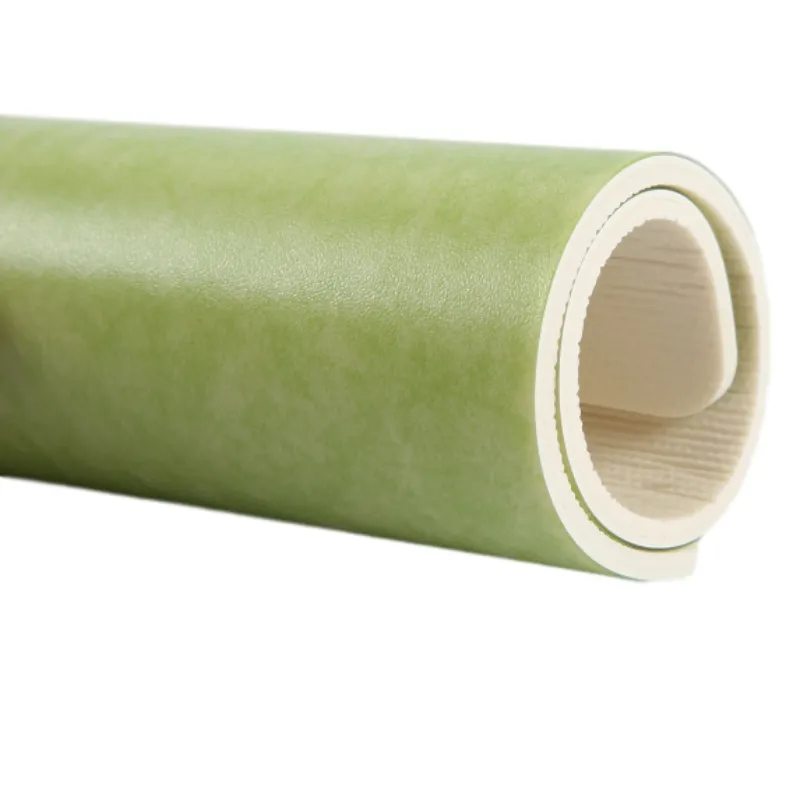Is PVC Flooring a Durable and Cost-Effective Choice for Your Home?
Is PVC Flooring Good? A Comprehensive Overview
When it comes to flooring options, homeowners and businesses alike often find themselves navigating a myriad of choices. One such popular option is PVC flooring, which has garnered attention for its durability, affordability, and aesthetic appeal. In this article, we will explore the advantages and disadvantages of PVC flooring to help you determine if it’s the right fit for your needs.
Understanding PVC Flooring
PVC, or polyvinyl chloride, is a synthetic plastic polymer widely used in various applications, including flooring. PVC flooring generally comes in two forms luxury vinyl tiles (LVT) and vinyl sheets. Its versatility and functionality make it a favorite among those looking to enhance the look of their interiors while maintaining practicality.
Advantages of PVC Flooring
1. Durability One of the standout features of PVC flooring is its remarkable durability. It is designed to withstand heavy foot traffic, making it ideal for both residential and commercial spaces. PVC flooring is resistant to scratches, dents, and stains, making it a reliable choice for high-use areas.
2. Water Resistance Unlike many traditional flooring options, PVC flooring is highly resistant to moisture. This quality makes it an excellent choice for areas prone to spills or humidity, such as kitchens, bathrooms, and basements. Homeowners can enjoy peace of mind knowing that their flooring can handle accidental spills without significant damage.
3. Affordability PVC flooring is generally more cost-effective than hardwood or tile options. This affordability does not compromise quality, as many people find that PVC flooring mimics the appearance of more expensive materials while remaining budget-friendly.
is pvc flooring good

4. Easy Maintenance Maintaining PVC flooring is relatively simple. Regular sweeping and occasional mopping are sufficient to keep it looking fresh. The water resistance of PVC also means you don’t have to worry about mold or mildew, which can be a concern with other flooring types.
5. Variety of Designs PVC flooring comes in an extensive range of colors, patterns, and textures. Homeowners can choose from wood-like finishes, stone effects, or vibrant colors, providing endless possibilities for interior design.
6. Comfort and Insulation PVC flooring typically has a softer feel underfoot compared to tiles or hardwood. It is also a good insulator, which helps maintain a comfortable temperature in your home, reducing energy costs.
Disadvantages of PVC Flooring
While PVC flooring has many benefits, it’s essential to consider its drawbacks. One notable concern is environmental impact. PVC is a plastic product, and its production and disposal raise eco-conscious issues. Additionally, some lower-quality PVC products may emit volatile organic compounds (VOCs), affecting indoor air quality.
Another potential disadvantage is the susceptibility of some PVC flooring to fading over time, especially when exposed to direct sunlight. Therefore, while it can be an excellent option in many situations, it’s crucial to select a high-quality product and consider the specific conditions of the installation area.
Conclusion
In summary, PVC flooring can be an excellent choice for those seeking a durable, affordable, and stylish flooring option. Its water resistance, easy maintenance, and variety of designs make it particularly attractive for busy households or commercial spaces. However, it's important to weigh these advantages against potential environmental concerns and the longevity of the product in your specific setting. By carefully considering your needs and researching quality brands, PVC flooring can enhance your space while offering practical benefits that stand the test of time.
-
Commercial Parquet Flooring: Considerations of Aesthetics, Practicality, And SustainabilityNewsApr.15,2025
-
PVC Sports Flooring: Performance, Applications, And Development TrendsNewsApr.15,2025
-
PP Interlocking Floor: a Paving Solution That Combines Functionality and SustainabilityNewsApr.15,2025
-
Plastic Flooring Tiles Outdoor: Practicality, Sustainability, And Development ProspectsNewsApr.15,2025
-
On the Application of PVC Flooring for Badminton Court in Badminton VenuesNewsApr.15,2025
-
Commercial Wood Flooring: the Balance Between Aesthetics, Functionality, And SustainabilityNewsApr.15,2025
-
The Ultimate Guide to Futsal FlooringNewsMar.27,2025

